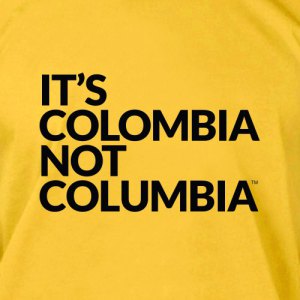Travelling around South America on business, I started noticing some changes to a premium British food export. Suddenly, it was hard to find some of the products in stock (British friends rang the alarm bells, I tell you!) and, shock horror, when stocked, the packaging had suddenly changed into something not terribly recognisable. So here’s the story…
Nowhere to be seen
The reason why I couldn’t find the products, I was professionally advised, is that the manufacturer cut down the export product range to less than half the products. There is quite likely a very strong reason behind this, but it is clear to me looking at it from our Latin American perspective that the products sell because they are part of a range. That point of sale presence is crucial in maintaining the brand’s high profile (and high prices). Those lonely boxes on the shelves don’t quite cut it.
Mind your (export) language
Now, it gets much worse. These products carry an added value because of their British origin. So the consumer expects them in English (with the statutory overstickering in Spanish). You pay a price for your little box to be in English. But the exporter dropped this packaging and translated all products into Spanish and Portuguese, for Latin America. Now, I’m always in favour of translations but this is THE exception. Would you like your Johnny Walker in Spanish? Surely not! You want it to have all those wonderful English language words (that you might understand or not, but they sound authentic to you). I can tell you that “Scottish Whisky” sounds very different to a Latin American consumer than “Whisky Escocés”. Diageo know that, so they wouldn’t translate the whole thing, as our exporter did. Also, there’s a limit to the Spanish/Portuguese double-act. Many Spanish speaking Latin Americans don’t like it. And neither do many Brazilians. Particularly for premium brands.
And it gets even worse. The Spanish and Portuguese translations are full of spelling mistakes. I mean, c’mon! You’re a
premium British brand, please! You just don’t do that. You don’t do translations on the cheap. I personally supervise all my clients’ Spanish translations and I’ve asked local distributors to help me with them (since Spanish is not quite the same in Mexico than in Argentina). I recently saw a Del Monte tomato ketchup bottle with one horrendous spelling mistake here in Montevideo. I couldn’t buy it. Mind you, I’d buy it in the future, because loyalty to this brand is minimal. But that’s not the case with a premium good. This, in my opinion, is unforgivable. I have actually seen the packaging myself. It was catastrophic, to say the least.
It doesn’t make sense
If customers can’t find the product or brand they want to buy, they will look for a competitor’s variation soon enough. And you will have lost the loyalty you worked so hard to build. If the distributors cannot sell the products, they will also look for new suppliers, probably ones that listen to their views when making such extreme decisions on branding and product range. All because of not listening to your customers. Bad, bad exporting.
What do you think? Should the exporter consult the distributors before making such extreme decision on branding and product range? Should they base their decisions on market research?
How do you feel about translations and export success? Do they matter?
Leave us your comment below or join the discussion on twitter @uklatinamerica



Exporters should absolutely consult their local partners! They are supposed to be part of the team! For the exporter not consult is arrogant to the extreme. Or thoughtless, which doesn’t say much for their sales effort.
And not only will the local partner be pleased to be consulted and recognised, they will probably provide a free editing service . . . very useful where a ‘shared language’ like Spanish can change considerably between countries.